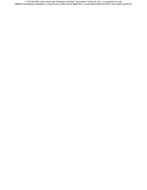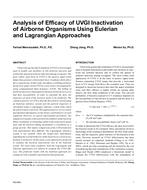Diversity of laboratory fume hood usage in laboratory ventilation systems is a real condition affecting not only the first cost but the stability with which a ventilation system serves a facility. As laboratory facilities get larger, the probability of simultaneous use of all available exhaust systems become significantly reduced. This results in engineering opportunities for reduction in central system size for better system control and reduced installed cost without undue risk to user personnel. Taking advantage of diversity has particular value when retrofitting existing facilities where available space may present practical constraints to increasing system size.
This paper presents a logical and statistically significant methodology for providing an engineering estimate of minimum system requirements to support a VAV laboratory ventilation system. This methodology is intended to build upon diversified design thermal load calculations and is based upon a statistical analysis of observations of use characteristics of existing facilities and prudent engineering assumptions. Discussed are computation and data collection methodologies and analyses of statistical data using mathematically calculated confidence levels established by the laws of probability.
This methodology is intended for use with 100% outside air systems, but will work for other schemes and provide conservative estimates when used for multifunction facilities where recirculation of air is permitted between nonlaboratory spaces. It is intended to provide guidance for establishing when reduction of system size becomes feasible and to quantify reduction potential.
Citation: ASHRAE Transactions, vol. 95, pt. 1, Chicago 1989
Product Details
- Published:
- 1989
- Number of Pages:
- 7
- File Size:
- 1 file , 930 KB
- Product Code(s):
- D-23635


